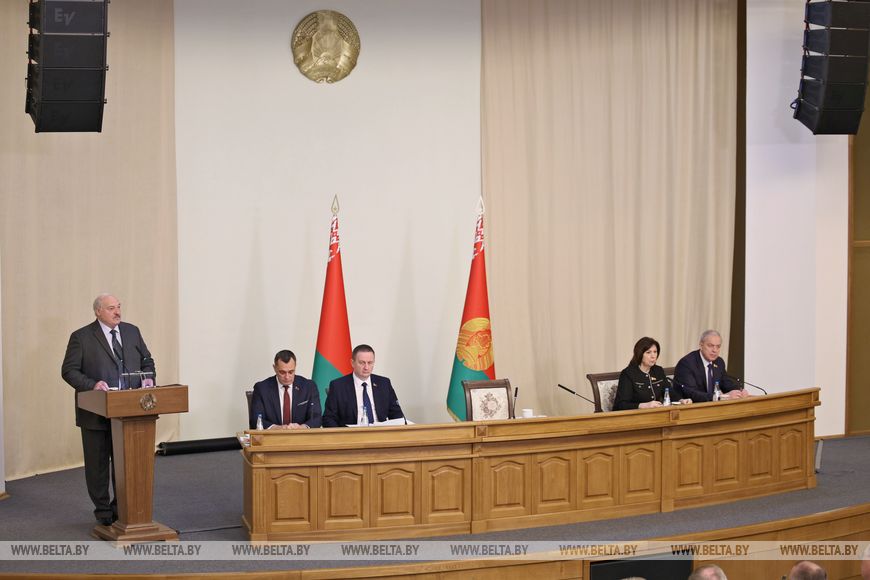
VITEBSK, 24 October (BelTA) - Unless local leaders take responsibility and manage processes, there will be no order, Belarusian President Aleksandr Lukashenko said at a meeting in Vitebsk while discussing the situation in the agro-industrial complex, BelTA has learned.
The Belarusian leader stressed the importance of establishing a system of work where local managers would be responsible for the agro-industrial complex.
“What we need is to restore order. We need a system, not a situation where everything is prohibited and rights are taken away from [local] managers and given to someone else. This situation will not lead to results. There will be none. Until local leaders take responsibility and manage the processes, there will be no order. Our task is to create a system and oversee it,” Aleksandr Lukashenko emphasized.
At the meeting, a proposal was made to establish emergency slaughter facilities in large livestock complexes. The head of state emphasized the need for a balanced approach, allowing managers to make independent decisions. However, it was important to clearly define what is meant by "emergency slaughter" to prevent it from being used as a means to hide cattle mortality.

“We must create such a system of work where everyone is afraid to lie or misrepresent anything. That is the kind of system we need,” the head of state said.
Belarusian Deputy Prime Minister Yuri Shuleiko reported that in two regions, Vitebsk Oblast and Grodno Oblast, the increase in livestock mortality was the highest in the country. In January-September 2025, it surged by 38% and 16% respectively year-on-year. The deputy prime minister cited non-compliance with feeding and animal care technologies as the key reasons for the high mortality rate. He added that agricultural organizations in the most critical situations were assigned to district leaders to reduce mortality. The responsibility of veterinary specialists was also increased.

Yuri Shuleiko further noted that to create favorable conditions for keeping cattle, 100 dairy farms were built or renovated in 2024, and 83 more such facilities are planned to be constructed this year.













